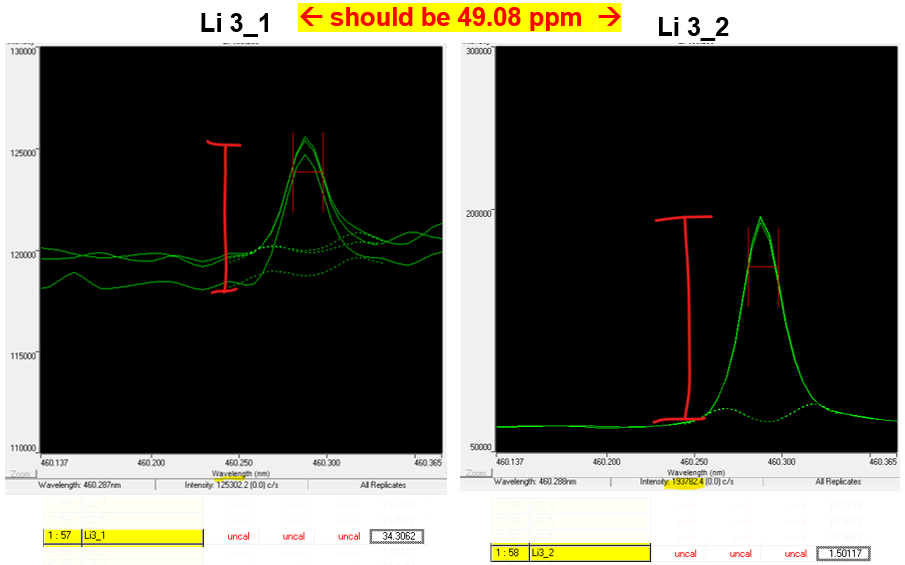I have recently taken over the maintenance of a high-traffic (Varian) 720 axial ICP-OES.
Some of my users reported imprecise and inaccurate Li determination. In my troubleshooting, I have found that:
a) the intensities obtained from a known sample can vary extremely from sample to sample
b) the background can very quite a lot, further altering signal-to-background (SBR).
c) the replicates of a given measurement can vary quite a bit.
I have considered that this may be due to EIE effects, so I am suggesting to them to include an ionization buffer, which I believe (?) would help maintain consistent emission intensities from the Li lines. However, I am less certain about what to prescribe for the variable background, or what keywords to search for at this point with trouble shooting.
I am including some screenshots of the Li 460 nm peak from my investigation. I made one large sample of Li and simply split it into multiple tubes, Li 3_1, Li 3_2, etc. My calibration curve had great linear response and a great RSD...

